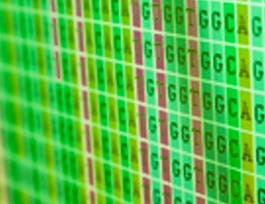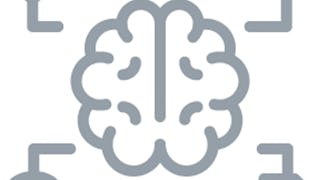The course provides a broad and mainly practical overview of fundamental skills for bioinformatics (and, in general, data analysis). The aim is to support the simultaneous development of quantitative and programming skills for biological and biomedical students with little or no background in programming or quantitative analysis.



Fundamental Skills in Bioinformatics



Instructors: Jesper Tegner
Sponsored by IEM UEM Group
9,366 already enrolled
(53 reviews)
Recommended experience
What you'll learn
Basics of R
Basics of Python
How to analyze bulk RNAseq count data
How to analyze single cell RNAseq count data
Skills you'll gain
- Bioinformatics
- Data Manipulation
- Python Programming
- Exploratory Data Analysis
- NumPy
- Statistical Analysis
- Computer Programming
- Probability & Statistics
- Data Analysis
- Business Analytics
- Statistical Programming
- Statistical Methods
- Rmarkdown
- Correlation Analysis
- Statistics
- Programming Principles
- Analytics
- R Programming
- Data Science
- Statistical Inference
Details to know

Add to your LinkedIn profile
13 assignments
See how employees at top companies are mastering in-demand skills


Earn a career certificate
Add this credential to your LinkedIn profile, resume, or CV
Share it on social media and in your performance review

There are 4 modules in this course
The first module will explore the basics of programming through R and this will include: working in R and RStudio, understanding data types, loops and ifs. Additionally, the module will provide an introduction to RMarkDown as a tool for sharing code that we will use in the coding lectures.
What's included
17 videos2 readings4 assignments
The second module will focus on two aims. Firstly, to master the use of logical values and vectors and its applications in quality control. Secondly, to practice the programming skills while learning how to perform basic statistical analysis. This will include: explorative data analysis, correlation, linear models, T-test, and ANOVA. Finally, we will explore the available resources for R programming.
What's included
20 videos1 reading2 assignments6 programming assignments
The third module will provide the basics of the Python programming language. First, the module will compare Python and R language and learn the programming syntax of Python. Second, the module will work with two key Python modules: pandas and numpy.
What's included
19 videos1 reading4 assignments4 programming assignments1 ungraded lab
The final module will focus on applying knowledge and understanding of programming in the analysis of real RNA-seq data. R will be used for analysing of bulk RNA-seq and Python for single- cell RNA-seq. The results of both analyses will then be integrated. Finally, the module will provide insights in how to gain deeper knowledge and skills in R.
What's included
19 videos2 readings3 assignments4 programming assignments
Instructors

Why people choose Coursera for their career




Recommended if you're interested in Data Science

University of Minnesota

University of Pennsylvania

University of Toronto

Open new doors with Coursera Plus
Unlimited access to 10,000+ world-class courses, hands-on projects, and job-ready certificate programs - all included in your subscription
Advance your career with an online degree
Earn a degree from world-class universities - 100% online
Join over 3,400 global companies that choose Coursera for Business
Upskill your employees to excel in the digital economy





